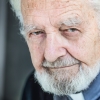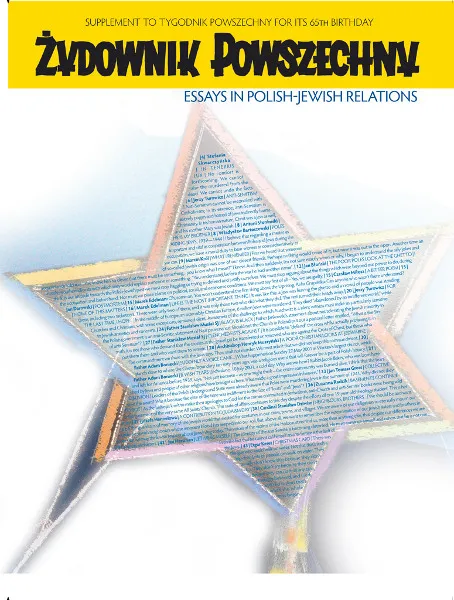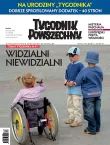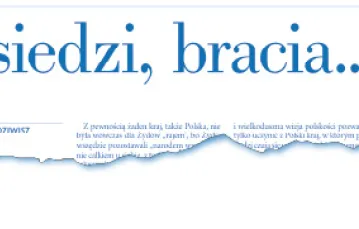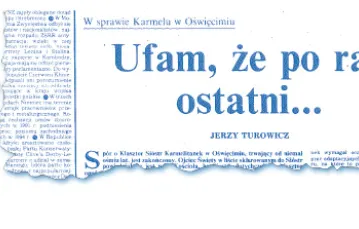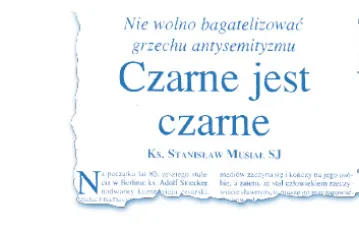Wykupienie dostępu pozwoli Ci czytać artykuły wysokiej jakości i wspierać niezależne dziennikarstwo w wymagających dla wydawców czasach. Rośnij z nami! Pełna oferta →
To commemorate the 65th anniversary of Tygodnik Powszechny, a special supplement to our weekly was published on 24 March 2010. It bears the provocative title of Żydownik Powszechny (an untranslatable Polish play on words referring to the magazine’s perceived pro-Jewish sympathies in the eyes of anti-Semites and opponents of Christian-Jewish dialogue in Poland). However, unlike the author and propagators of the term “Żydownik", who intended it as an insult, our editorial staff regard it as a source of honour and pride. Indeed, throughout its history, Tygodnik Powszechny has been at the forefront of dialogue with other religious faiths, especially Judaism. Karol Wojtyła (later Pope John Paul II) was a former contributor, and in 1987 Professor Jan Błoński of Kraków’s Jagiellonian University published in Tygodnik his groundbreaking essay “Biedni Polacy patrzą na getto" [The Poor Poles Look at the Ghetto], which caused a great stir in Poland and forever altered the tone of the debate on Polish-Jewish matters.
The supplement comprises a selection of the most important essays and articles published in Tygodnik Powszechny on the subject of anti-Semitism, the Holocaust, and the attitude of the Catholic Church towards Judaism. The common history that emerges from these pieces has both dark and light chapters.
Symbolic of the road Polish society has taken in its attitude towards the Jews are two contributions, the first opening, and the second closing the supplement. The former was written by Stefania Skwarczyńska just after the Kielce pogrom of 1946; the latter is a short story about Jesus of Nazareth by the outstanding Israeli writer Etgar Keret, which was published in the Christmas 2009 issue.
Other contributors include: former Foreign Minister Władysław Bartoszewski, Cardinal Stanisław Dziwisz, commander of the Warsaw Ghetto Uprising Marek Edelman, historian Jan Tomasz Gross (author of Neighbours), writer and poet Czesław Miłosz, and Tygodnik Powszechny’s former editor-in-chief, Jerzy Turowicz. Someone who, in 2010, reads Jerzy Turowicz’s texts from decades ago might be surprised that he was at such pains to stress and comprehensively explain issues that today seem obvious, for instance that “it is impossible to be a conscious and consistent Catholic while being an anti-Semite at the same time"...That today this is self-evident is the fruit of yesterday’s labours. But is it self-evident to everyone?
We hope that, over the decades, our open, uncompromising and determined attitude in taking up issues connected with Poland’s troubled past, and our commitment to overcoming anti-Jewish prejudice in Polish society and in the Catholic Church, has made, and will continue to make, an important contribution to Polish-Jewish reconciliation.

